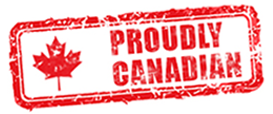Remember Your First Sale?
There is no doubt that experience is a plus in any vocation, including sales, just look at any job posting for sales, and with the exception of entry level positions, they will demand experience both in terms of tenure and industry related. As with other things in life, there are no absolutes, it is usually a case of upside and downside. The upsides are clear and straight forward, so let’s look at the downside and risk of experience, both as it impacts individual sales people, and sales organizations.

In most disciplines the biggest victim of experience is creativity, in the form of the curiosity that comes with being new; a sense of exploration, a naïve ignorance that removes limits from many individuals, allowing them to go where others “with knowledge and experience” may not go. Given that these factors are usually the core components of creativity in sales, and that in sales creativity is one of the last differentiators, how do you reach the right balance?
Think back to your first sales position, everything was new, everything required learning. If you were with some bigger companies you got training as part of your on-boarding. But if you were with a smaller, not small, just smaller company, you likely got more product training and orientation than sales related training; and we are talking formal training not war stories from the “older guy. The older guy that you should not have been learning from, because if he did know better, he would have been out on calls, not in the office with time to hold court.
Left to your own devices, you improvised, tried different things, some worked, some were bruising, but collectively they added to you initial success and experience. As things got better and you committed to your sales career, and you likely did two things, you developed routines, and took some training, building experience. As you career evolved, and you “usually” made quota, or only missing by a “bit”, your experience grew, your training reinforced your routines and habits. As you had “more of it down” the less adventurous you got, and the narrower your curiosity and appreciation for alternatives, you were now set in your ways, or as someone I work with says “stuck in your ways”.
Over 40% of things we do every day, we do habitually or out of habit. Meaning we don’t need to think about it, we just do it. This applies to both good and bad habits. Runners run as a habit, they build their daily runs into their daily routine. It’s not a run-by-run question. Smokers light up habitually, they don’t think about it, they just do it.
The great thing about that is things that need to get done – get done, usually in a familiar, predictable and consistent fashion, without a lot of thought or consuming much of the energy required for the 60% that are not habit. The problem with that is we don’t think about it, we just do it, it’s easier for day to day things, the way we do it rarely change, rarely improve or rarely reinvent themselves. Not a good thing in a continuously changing and evolving market, where buyers are challenged by change, and have access to not only more information, but more choices.
So what’s a sales professional to do, deconstructing habits takes time and effort; forming new habits takes time and effort, and executing every aspect of every sale in a way that avoids routine or habits, also carries the same cost.
Start simple, as you review opportunities that did not close, ask yourself, what were some recurring things you do, or fail to do, that contributed to the loss. If you didn’t do specific things would things have turned out better, same for things you may have done. As you review opportunities that you win, ask yourself which things you did may have slowed the sale down or introduced risks. What are some things that you do that if you stopped doing would not slow or risk the sale. In hindsight, what are some things that if you did during the sale would have accelerated the sale or improved the outcome?
Give yourself a break, and at first just try to identify those things that you do by habit that you can stop doing without negative impact. This may be a challenge, especially when by definition we do not think about things we do by habit, this is why it is best to examine what you do in the context of a deal review, we are already (or should be) in critical mode.
A more challenging but valuable step is one often better done as a team, and led by the manager. Pick a current opportunity or a recent deal, and ask: “If I didn’t know better, if I were new to sales, what would I do?” It’ll take a bit of an effort to break out of your “experience”, but once you get rolling, and get past the familiar, you’ll find some great ideas. Resist the urge to “know better”, and examine it in context of the situation not your experience. Look for things that may solicit the response “that’s a rookie thing to do”, because those are the elements you can build on. You’ll also find that some suggestions will make you remember things you used to do but stopped. The great thing is you can always start again.
While you do want to review every deal, you may not want to review your “habits” for every deal. If you started on a monthly basis, then move to quarterly, throw in a regular “What would I do if I didn’t know better” exercise, you’ll strike a balance, and develop a great new habit.
What’s in Your Pipeline? Tibor Shanto
© 2015 by Tibor Shanto. Tibor Shanto – Principal – Renbor Sales Solutions Inc., is a recognized speaker, author of award winning book Shift!: Harness The Trigger Events That Turn Prospects Into Customers, and sought after trainer; his work has appeared in numerous publications and leading websites. Called a brilliant sales tactician, Tibor helps organizations execute their strategy by using the EDGE Sales Process to create the perfect combination of strategy, tactics, and skills to ensure execution. This forward thinker has been ranked 8th on the “Top 30 Social Salespeople in the World” by Forbes.com. He has also received Gold Medal for the “Top Sales & Marketing Blog 2013” from the Top Sales World Awards. Tibor can be reached at tibor.shanto@sellbetter.ca or + 1 416-822-7781.
When it comes to finding reliable partners in the Canadian market, Scott’s Directories is an invaluable resource. The direct...
Read MoreA Western Directory can significantly enhance your B2B marketing strategy. By leveraging detailed data, you can identify potential...
Read MoreFinding the right healthcare facility is crucial for quality care. The list of hospitals in Ontario provides an extensive director...
Read More























